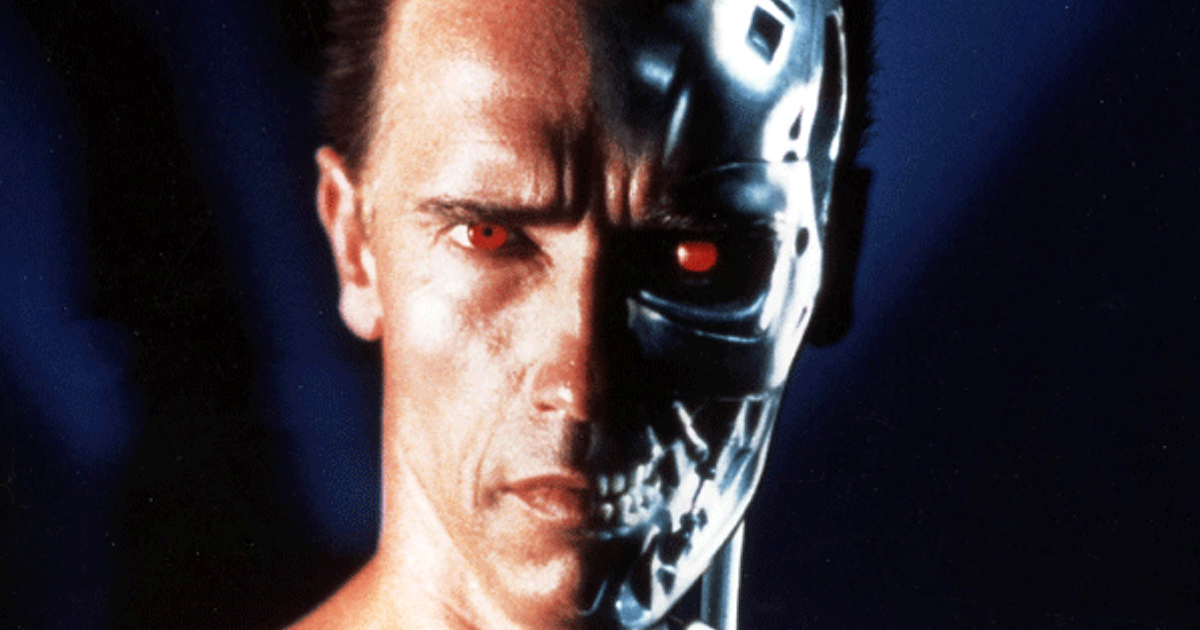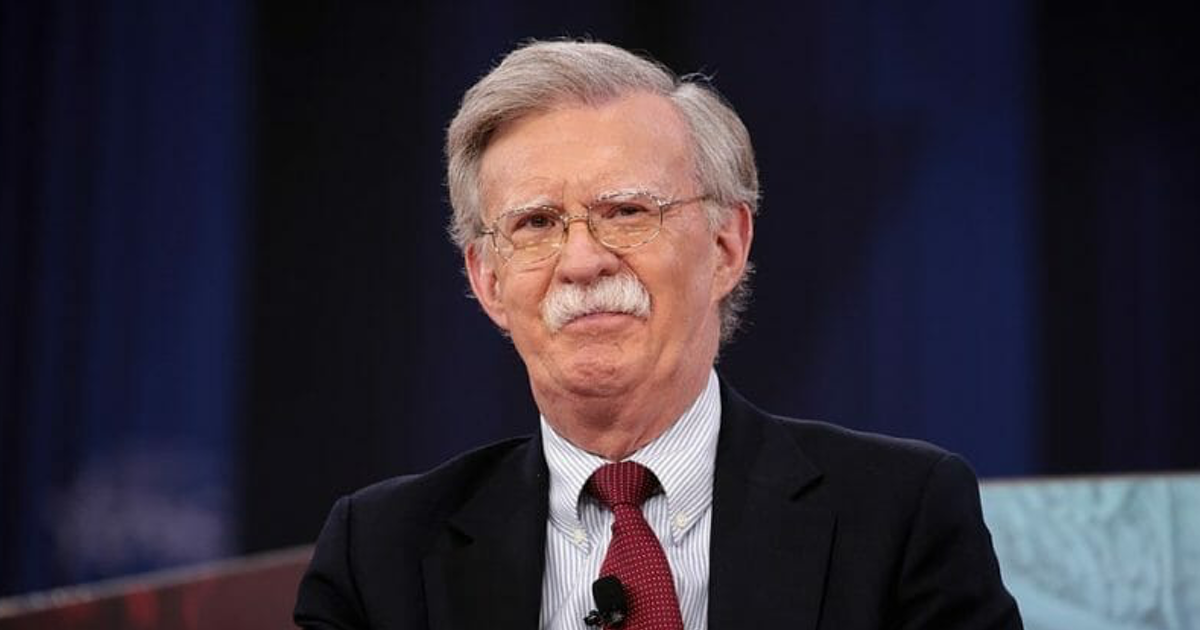|
Secretary of State Pompeo has ordered all US diplomats to return from Venezuela. Their presence in country is "constraining" US foreign policy, he says. Is this the pre-cursor to a US attack? What about the power outages in Venezuela? A US cyber-attack? Are the neocons about to pull the trigger?
By Ron Paul
The House of Representatives recently passed legislation that would expand the national background check system to require almost everyone selling firearms, including private collectors who supplement their incomes by selling firearms at gun shows, to perform background checks on the potential buyers. The bill has a section purporting to bar creation of a national firearms registry. However, the expanded background check system will require the government to compile lists of those buying and selling guns. In other words, it creates a de facto national gun registry. Similar to the experience with other types of prohibition, making it more difficult to legally buy a gun will enhance the firearms black market. Criminals, terrorist, and even deranged mass shooters will thus have no problem obtaining firearms. It is no coincidence that the majority of mass shootings take place in “gun-free zones,” where shooters know their targets will be unarmed. This shows that any law making it more difficult for Americans to own and carry firearms makes us less safe. If Congress really wanted to reduce the incidence of gun violence, it would repeal the Gun-Free School Zones Act. This law leaves children easy prey for mass shooters by mandating that public schools be “gun-free zones.” A nationwide system of gun registration could be a step toward national gun confiscation. However, antigun bureaucrats need not go that far to use the expanded background check system to abuse the rights of gun owners. Gun owners could find themselves subject to surveillance and even harassment, such as more intensive screening by the Transportation Security Administration, because they own “too many” firearms. Republican control of the White House and the Senate does not mean our gun rights are safe. Republicans have a long history of supporting gun control. After the 1999 Columbine shooting, many Republicans, including many who campaigned as being pro-Second Amendment, eagerly cooperated with then-President Bill Clinton on gun control. Some supposedly pro-gun Republicans also tried to pass “compromise” gun control legislation after the Sandy Hook shooting. Neoconservative Senator Marco Rubio has introduced legislation that uses tax dollars to bribe states to adopt red flag laws. Red flag laws allow government to violate an individual’s Second Amendment rights based on nothing more than a report that the individual could become violent. Red flag laws can allow an individual’s guns to be taken away without due process simply because an estranged spouse, angry neighbor, or disgruntled coworker tells police the individual threatened him or otherwise made him feel unsafe. President Trump has joined Rubio in wanting the government to, in Trump’s words, “take the guns first, go through due process second.” During his confirmation hearing, President Trump’s new Attorney General William Barr expressed support for red flag laws. California Senator and leading gun control advocate Dianne Feinstein has expressed interest in working with Barr to deprive gun owners of due process. It would not be surprising to see left-wing authoritarians like Feinstein work with right-wing authoritarians like Barr and Rubio on “compromise” legislation containing both a national red flag law and expanded background checks. My years in Congress taught me that few politicians can be counted on to protect our liberties. Most politicians must be pressured to stand up for freedom by informed and involved pro-liberty citizens That is why those of us who understand the benefits of liberty must remain vigilant against any attempt to erode respect for our rights, especially the right to defend ourselves against private crime and public tyranny.
By Austin Pace
As candidates begin to put their names in the hat for the presidential race, one candidate is running almost solely on one issue. Andrew Yang, a former lawyer and entrepreneur, wants Universal Basic Income to be implemented for all 18-64 year-olds. His argument for this, per his website, is “a third of all working Americans will lose their job to automation in the next 12 years. Our current policies are not equipped to handle this crisis.” Will Technology Cause An Unemployment Crisis? Yang joins a growing list of vocal supporters who insist technology advancements will result in massive unemployment, and therefore UBI is necessary for society. This is not a new idea. The idea that technology destroys jobs and will cause massive unemployment prevails despite history demonstrating otherwise. It’s a disproven myth. After all, if technology had been destroying jobs for the hundreds of years people have been arguing about automation and machines, there would be hardly any jobs left. This is of course not true. Bulldozers took the place of men with shovels. Cars put railroad workers out of business. Elevator operators, typists, blacksmiths, and manual telephone operators jobs all vanished over the 20th century. Yet official unemployment in September of 2018 was the lowest in nearly 50 years. In fact, the labor force participation rate has actually gone up since mid-century due to women entering the workforce. We have more jobs now than ever. Predictions of technology harming the workforce have constantly failed since the dawn of technology itself. Despite this, Yang says automation in the next 12 years will cause a crisis. He claims UBI will handle that crisis. He is wrong on both accounts. Technology Fear-Mongering is Unrealistic and Unfounded Technology serves to make the economy stronger. Machines and tools make us more productive. The entire goal of economic progress is to make us more productive, more efficient, have more consumer goods available, more leisure time, and higher standards of living. This is achieved by higher productivity and efficiency. We are better off not needing twelve people with shovels to do the same thing as a bulldozer. Yang zeroes in on truck drivers in particular. He cites the 3.5 million truck drivers in the nation. Where will those drivers be if their jobs are automated away in 12 years (as if all companies can afford and will buy self-driving 18 wheelers in that time frame)? We should ask what happened to all of the VHS manufacturers, the landline phone manufacturers, and video store workers? What happened to the 1.5 million railroad workers or the typewriter makers and technicians? Labor is fluid and finds new work. Job hopping has already been on the rise. People learn new things and get new jobs. They do it constantly. Society creates and destroys different kinds of jobs through technology. Markets adjust and people will find new work, just as has been in the past. The prediction that technological advancement will be too rapid for us to adjust is a hollow, misguided forecast that lives on despite its losing record. Universal Basic Income is Unaffordable Aside from that, let's look at the economics of Universal Basic Income. Yang’s proposal is $1,000 a month for all people aged 18-64. The reason he cuts it off at 64 might be that his proposal is essentially Social Security for all and the existing program begins around age 62. The total cost of his proposal would be around $2.5 trillion dollars per year. He claims this can be done be creating a massive Value Added Tax and eliminating money elsewhere in the budget from an already $4 trillion dollar budget. This is not feasible and would certainly add onto the over $22 trillion dollar debt tab of the Federal government. Ultimately, the plan is just an expanded variation of existing welfare programs that expands to fiscally unsustainable levels and add a huge tax on the nation. Wrong Diagnosis, Wrong Prescription Job displacement does occur and people must adjust. It's worthy to take notice of this and know that people can use help when finding new jobs and new careers. However, technology should not be avoided and feared because it replaces currently existing jobs. It makes our lives better and leads to the liberation of labor for newer, better jobs. The next generation of technological development and automation won’t result in a joblessness crisis. To the manageable extent that technology does displace jobs, Universal Basic Income doesn’t help this in any meaningful or realistic way. Yang wants to provide an ineffective, unaffordable solution to a problem that doesn’t exist. Austin Pace is an operations analyst in the logistics industry. He lives in Austin, Texas. This article was originally published at The Mises Institute.
Former Trump campaign official Paul Manafort has been sentenced to nearly four years in prison for acting as an unregistered agent for Ukraine. But looking at the media coverage of the case one would never know that "taking down" Manafort was not all about Russia collusion. Reporting...or propaganda?
As is always the case, government "help" backfires on the very people that are purportedly being "helped." The minimum wage law is a prime example. As government outlaws jobs below a certain dollar amount, low-skilled workers suffer tremendously and are forced into unemployment. Employees of Whole Foods are now experiencing a minimum wage hike blowback as their hours are being slashed. Ron Paul discusses on today's Liberty Report.
A surprise revelation from a staffer in House Minority Leader Kevin McCarthy's (R-CA) office has everyone talking about whether the NSA has really ended its metadata collection of our phone calls and texts, which was authorized by the 2015 USA FREEDOM Act. They say they no longer need the data collection allowed by the Act. Is it true...or have they developed something else?
By Chris Rossini
"When I grow up, I'm going to change the world." Very common words, that often lead to very common troubles. Politics and wars are the outgrowth of such erroneous thinking. So what's the problem here? Well, let's ask a few simple questions: - Did you create the world? ... No. - Did you create yourself? ... No. - Do you know everything about the world ... No. - Do you know everything about yourself ... No. Things are not looking good so far, since every single person walking this Earth has the exact same answers to the above questions. One of the prime characteristics that we all share is ignorance. Individually, we know so very little, both about the world that we live in, and about ourselves. Yet somehow, "I'm going to change the world," comes so easily to many people. - Who told you "the world" needed to be changed? - Who put you in charge of changing it? - Why would anyone give you that job? Since we're all ignorant, it makes much more sense to say: "I'm going to change myself!" "Right now I'm going to change myself, and when I grow up I'm going to change myself some more." Wow! How powerful is that? But what does it mean to change yourself, and why do it? Well, as we've already established, we're all ignorant about the world that we live in, and about ourselves. So in order to survive, that needs to be changed, and changed on a daily basis. Who's the only one in the world that can change you? That's an easy one ... YOU! How do you rid yourself of some ignorance? ... By learning the truth! Learning truth about what? ... About everything that you can. Here's a little secret, that's not really a secret at all. The world already has a natural "government." It doesn't need you to be in charge of it. Neither you ... nor I ... nor anyone else is here to run the cosmos. We always read stories of men and their grand plans to create a "world government." But there's already a world government and it's the only one that has ever existed, or that ever will exist. This is not a religious venue or article, so for the sake of convenience, we'll call the world government the "Truth." What was true thousands of years ago, is true today, and will be true thousands of years from now. The same goes for that which is not true. What was an error thousands of years ago, is an error today, and will be an error thousands of years from now. With such a setup, it becomes clear that it's not "the world" that needs changing. Rather, it's the ignorant individuals in the world that need to systematically change themselves. Every day, in order to survive and thrive, we must improve our personal 'truth-to-error ratios.' We need to add truth to our understanding, and discard our errors. That's quite a job. Obviously, we don't have to do this. No one can force us to do anything. We're free to stay as ignorant as we want. But the more error that we wash away, and the more truth that we can see, the more fruitful our lives become. But what about everyone else? If we have this huge task of working on ourselves, how do we "change" anyone else? Well, that's a bad question. It's not our job to "change" anyone else, because it can't be done. We only have the power and ability to change ourselves. We can, however, help others...Not "change," but help. The best help that we can provide to others is to speak the truth to them. Not force the truth on them, because force and truth are polar opposites. Just speak the truth to them. After that, it's exclusively up to them to either believe us or not, and adopt the truth for their life, or not. Obviously, the often preferred choice for the "world changers" is to not learn the truth for themselves, not work on their own errors, not focus on the only person that they control (which is themselves), but instead go out on a mission to "change" everyone else! These individuals are often attracted to using violent force. They form governments and then use that force on a grand scale. They constantly fail to achieve their stated objectives, which never seems to matter to anyone, including themselves. It's all a result of ignorance en masse. But the Truth is still here, and it isn't going anywhere. So, individually, let's go after it, let's share it, and give the world one improved person at a time.
President George W. Bush's vice president, Dick Cheney, is widely seen as the "real" president when it came to implementing an aggressive, neocon-approved foreign policy. Bush was seen as incurious putty in Cheney's hands. Has Trump's National Security Advisor John Bolton taken on that role in this Administration? Is Bolton the new Cheney?
US-named Venezuela president Juan Guaido defied the Venezuelan government and returned to the country yesterday. US neocons were hoping that his arrest would open the door to US military action. They were disappointed. The Venezuelan government stood down and allowed his return. What's next for the regime changers?
By Ron Paul
President Trump’s second summit with North Korean leader Kim Jong-Un last week was criticized by both parties in Washington long before Air Force One even touched down in Hanoi. Washington’s political class seemed terrified that the nearly 70 year state of “war” with North Korea might actually end. In the end the only positive thing they could say about the meeting was that Trump apparently walked away with nothing to show for it. The location of the meeting – Hanoi, Vietnam – serves as a great example of what can be won in peace versus what is lost in war. After losing nearly 60,000 US service members in an unnecessary war that took a million Vietnamese lives, the US loss of the Vietnam war resulted not in a communist takeover of southeast Asia but something very different: the domino theory failed because communism was destined to fail. Now we are close trading partners with an increasingly pro-market Vietnam. The result of trade and exchange versus war is a better life for all. Unfortunately for Washington, the real lesson of Vietnam has not been learned. That is why the Republicans, Democrats, and the entire mainstream media spoke as one against President Trump’s decision to take a bold step and actually meet again, one-on-one, with one of our “enemies” to see if we can avoid nuclear conflict. One leading Democrat, House Intelligence Committee Chairman Adam Schiff (D-CA), attacked Trump for meeting with Kim because speaking to the North Korean “gives him legitimacy.” Does it make any sense that we should not even speak with our nuclear-armed adversaries because it gives them “legitimacy”? He’d rather have a nuclear war as long as Kim remains “illegitimate”? This is sadly the kind of thinking that prevails in Washington. The media reported that Trump walked away from the meeting before the scheduled signing ceremony and closing press event. The talks broke down, it was reported, because Kim demanded an end to all sanctions before any reduction in North Korea’s nuclear arsenal. Washington sighed with relief and said all together, “better no deal than a bad deal.” Meanwhile the North Koreans held a rare press conference clarifying that they only asked for partial sanctions relief in exchange for dismantling one of their main nuclear facilities. Further, press reports began to surface that National Security Advisor John Bolton threw additional demands on the table which led Kim to draw the meeting to an early close. Who’s telling the truth? We likely won’t know. But given Bolton’s strong opposition to any kind of peace agreement with North Korea it’s hard to doubt that he had something to do with the blow-up of the summit. As the New York Times reported over the weekend, while Trump’s advisors were shocked when he decided to meet Kim face-to-face the first time for negotiations, John Bolton wasn’t worried at all. As the Times writes, “Mr. Bolton told colleagues not to worry. The negotiations, he said, would collapse on their own.” And so they did. Will Trump continue to allow his diplomatic efforts to be undermined by his own staff? Let’s hope the president will ignore Washington, ignore the neocons, and continue to work for peace with North Korea. |
Archives
July 2024
|





 RSS Feed
RSS Feed



